Abstract
Increases hydrostatic pressure varied the 72-h growth yield of three bacterial isolates from the deep sea in the presence of heavy metal cations of Mn, Cu, Co, and Ni, depending on the bacterial isolate, the metal cation and its concentration, and the level of hydrostatic pressure. Above atmospheric, hydrostatic pressure was found to have one of the following four effects on the response of culture growth to a heavy metal cation. (i) It could be without effect; (ii) it could enhance inhibition by a metal cation; (iii) it could increase the 72-h growth yield by a metal cation; or (iv) it could protect against a growth inhibitory effect noted at a lower pressure. Possible reasons for these varied responses are discussed.
Full text
PDF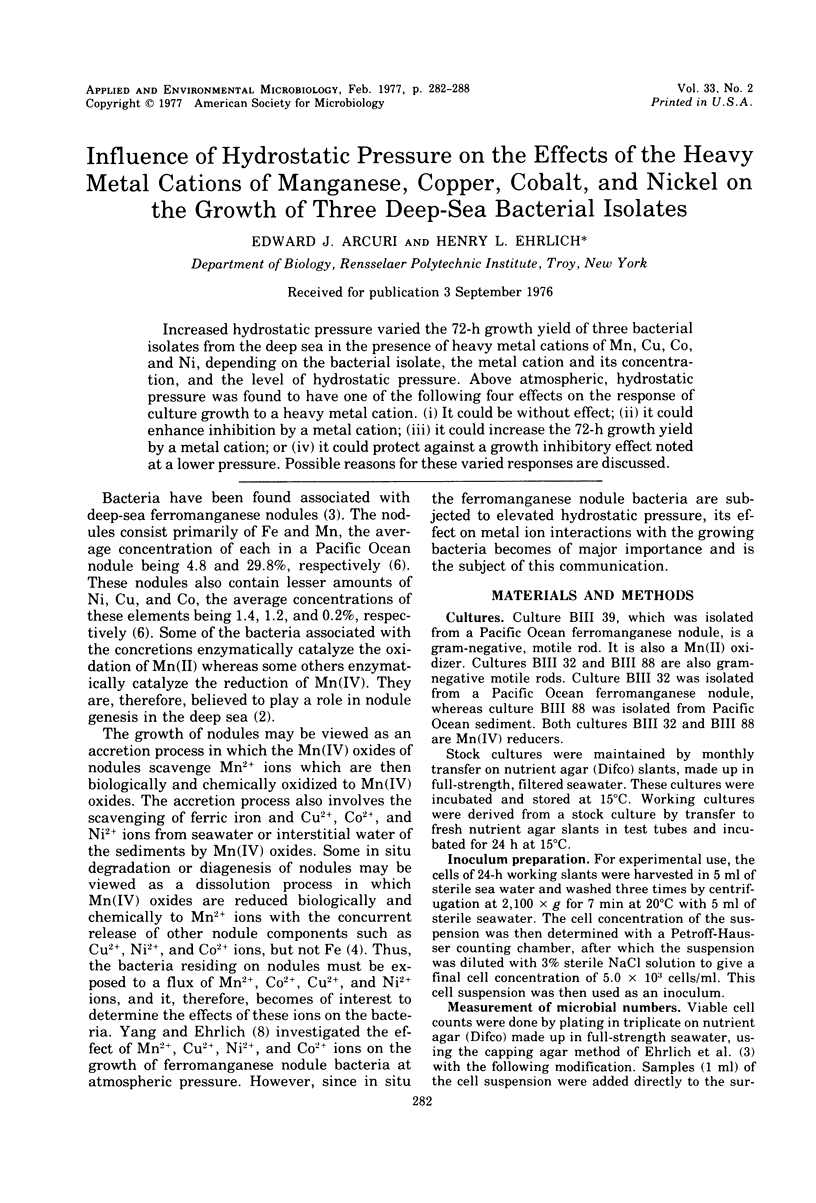
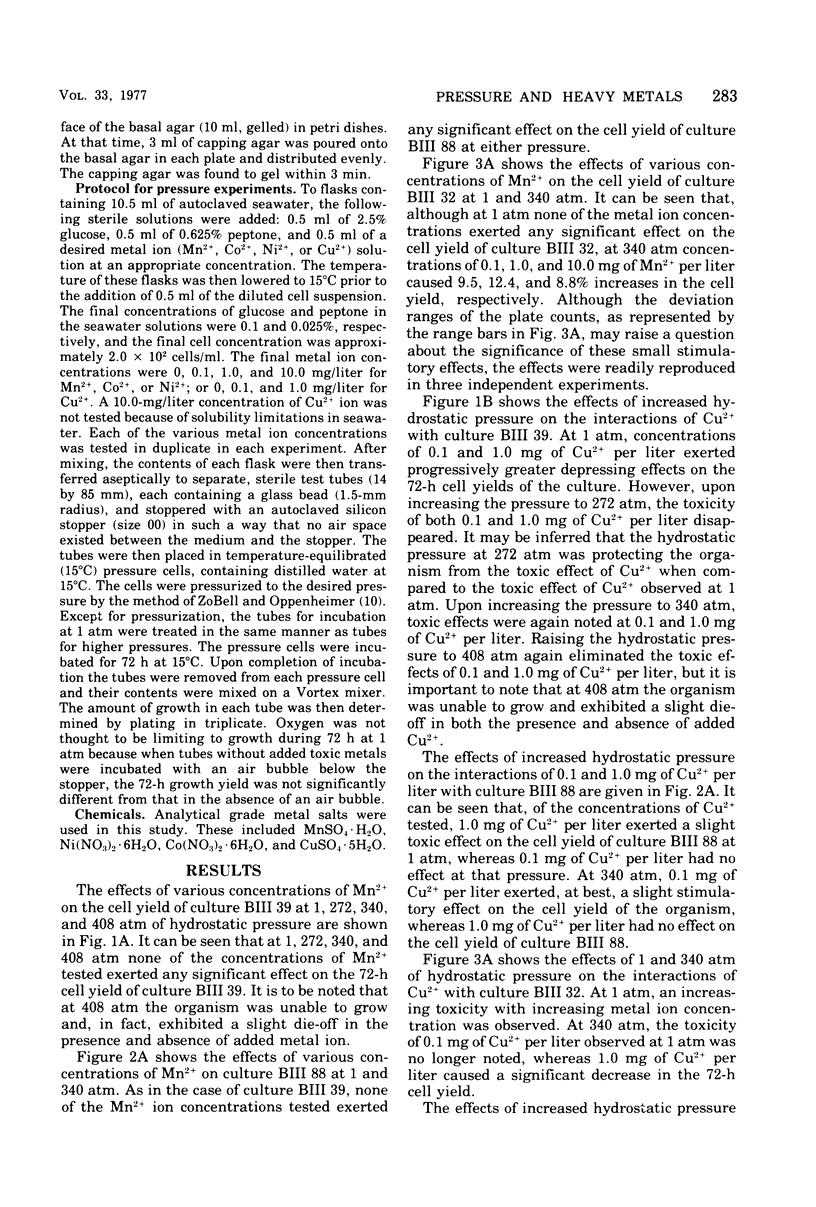
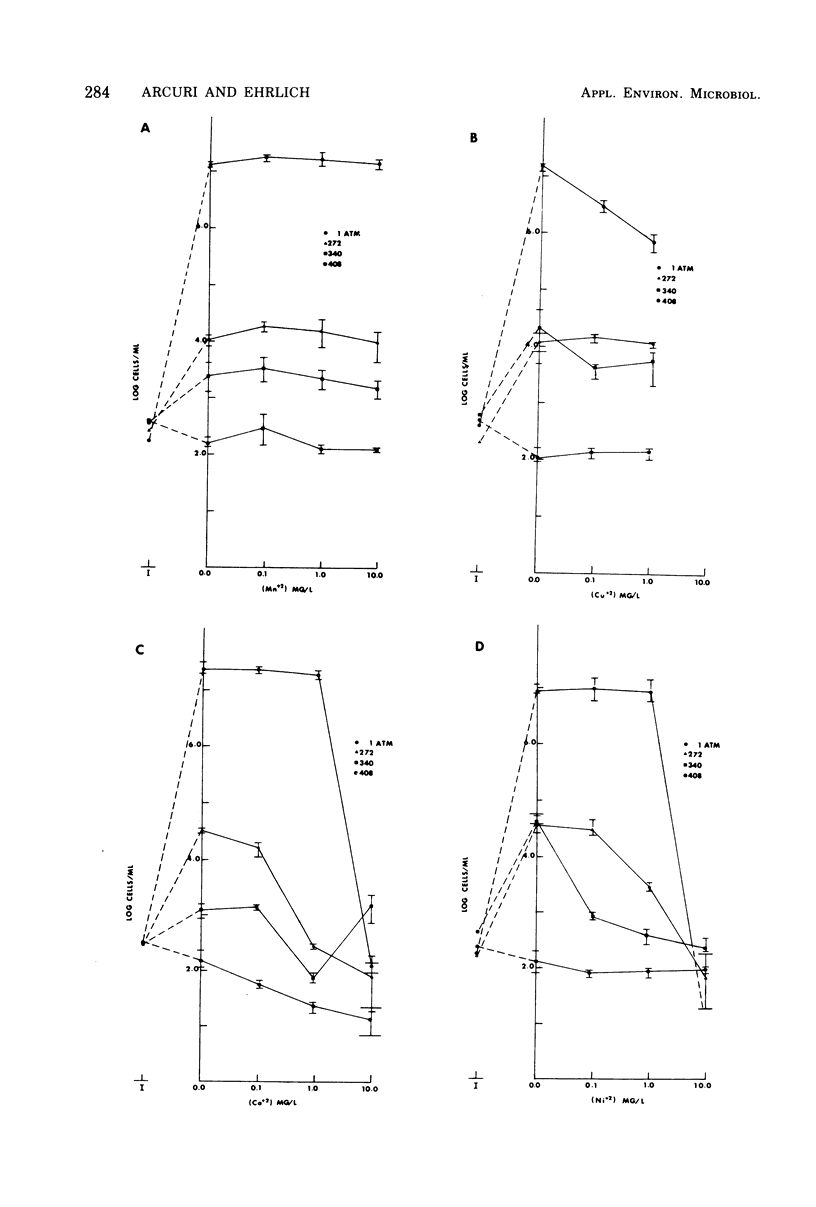
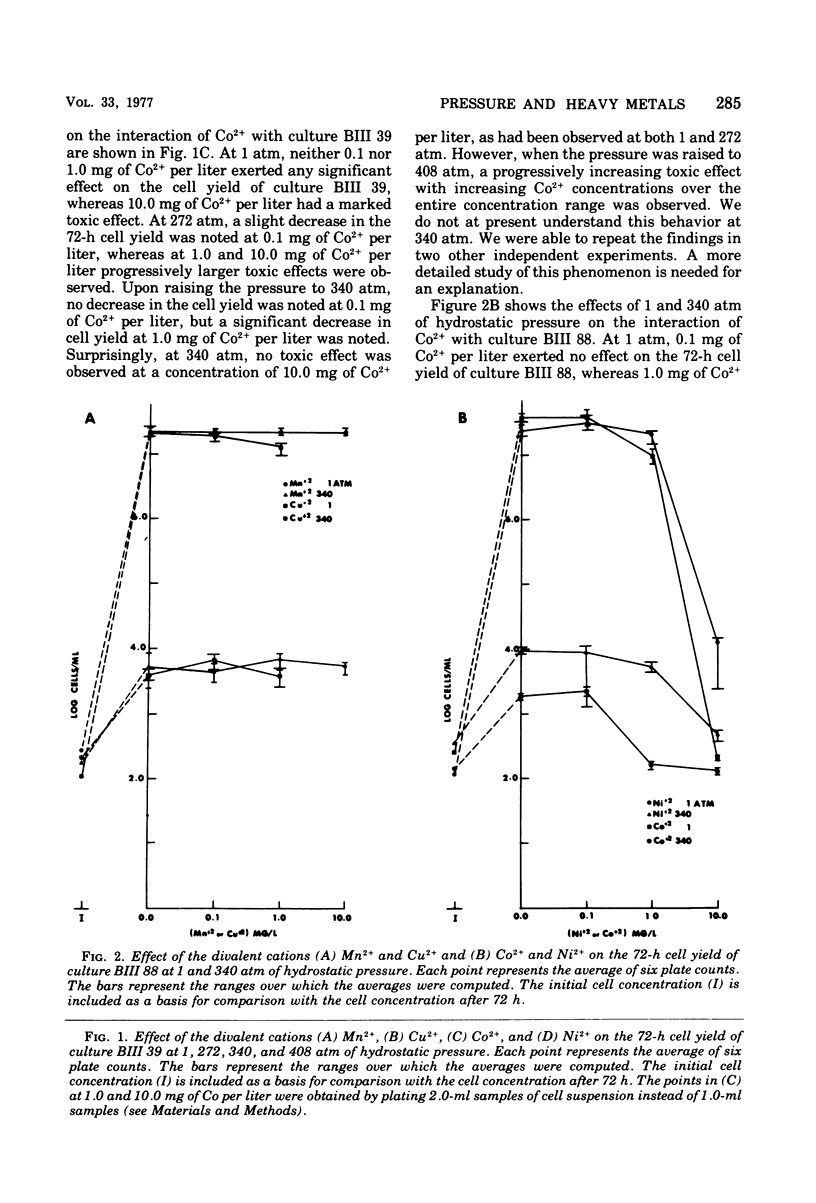
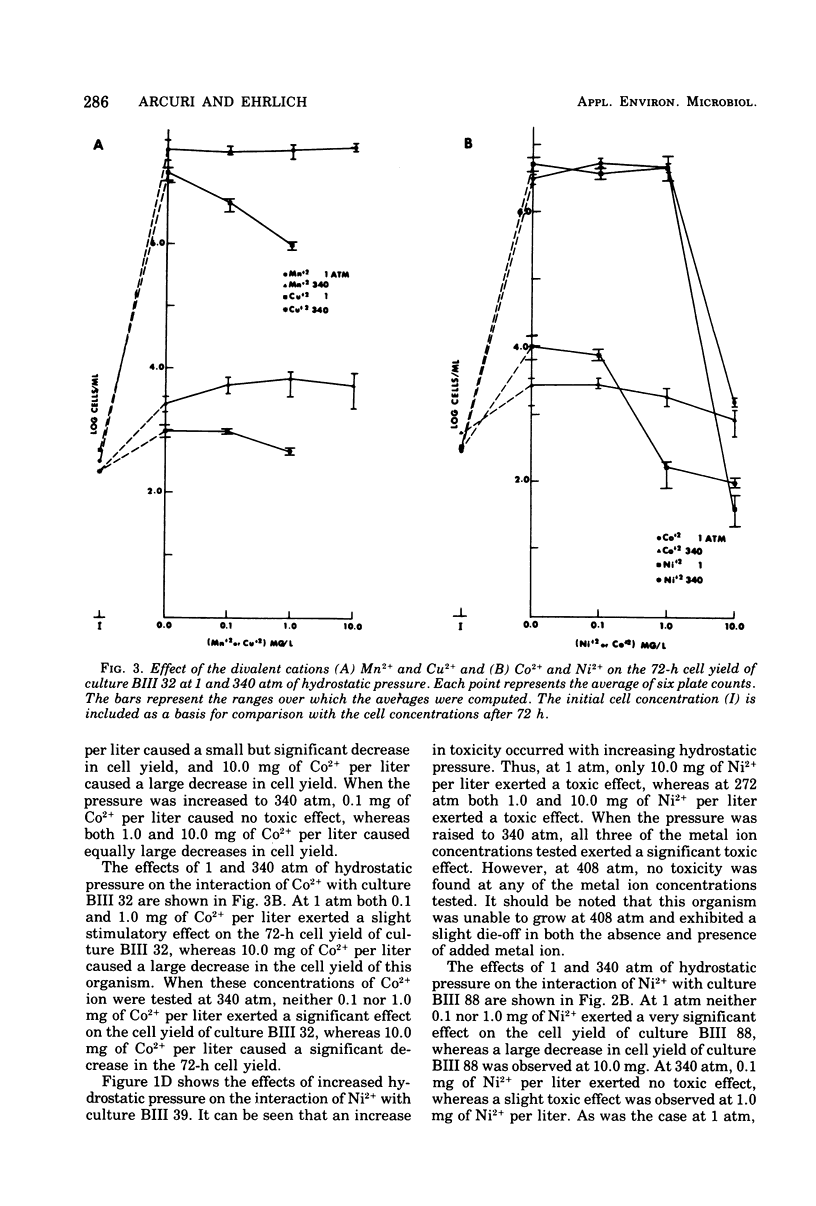
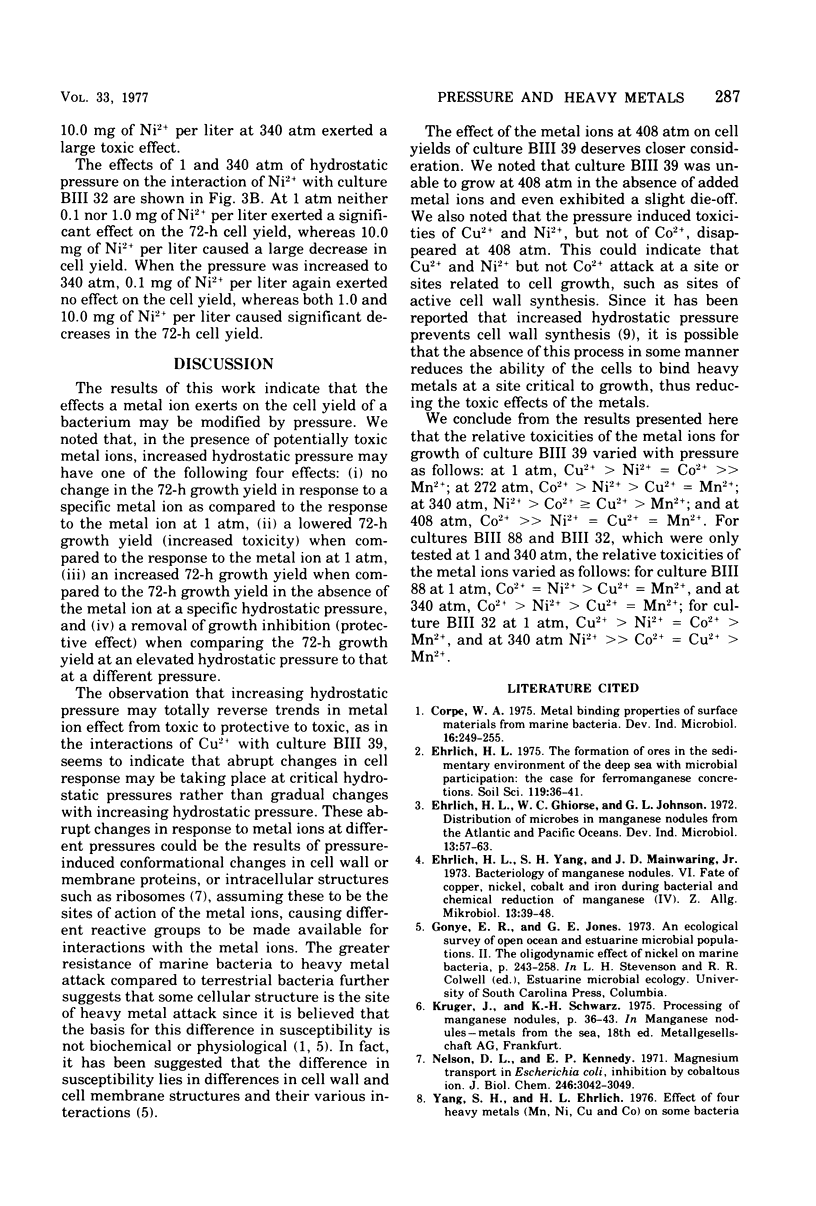
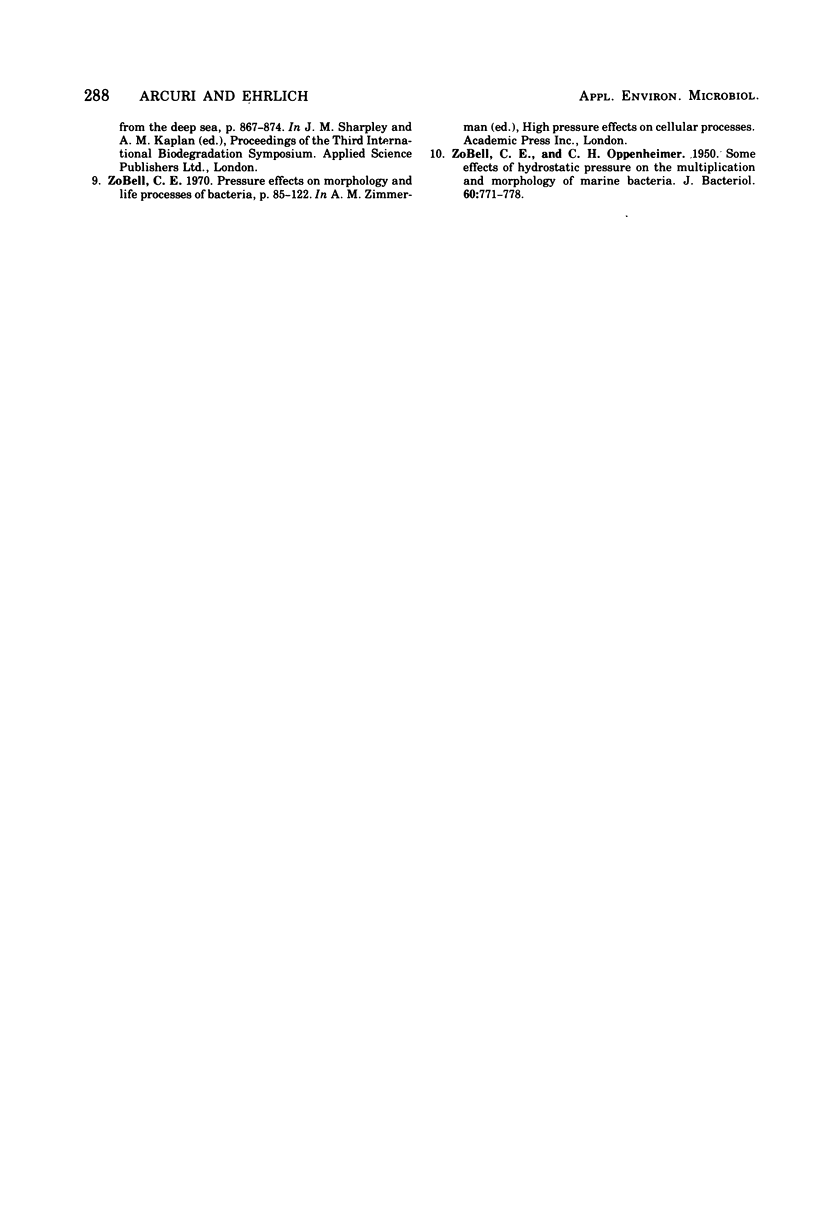
Selected References
These references are in PubMed. This may not be the complete list of references from this article.
- Ehrlich H. L., Yang S. H., Mainwaring J. D., Jr Bacteriology of manganese nodules. VI. Fate of copper, nickel, cobalt, and iron during bacterial and chemical reduction of the manganese (IV). Z Allg Mikrobiol. 1973;13(1):39–48. [PubMed] [Google Scholar]
- Nelson D. L., Kennedy E. P. Magnesium transport in Escherichia coli. Inhibition by cobaltous ion. J Biol Chem. 1971 May 10;246(9):3042–3049. [PubMed] [Google Scholar]
- ZOBELL C. E., OPPENHEIMER C. H. Some effects of hydrostatic pressure on the multiplication and morphology of marine bacteria. J Bacteriol. 1950 Dec;60(6):771–781. doi: 10.1128/jb.60.6.771-781.1950. [DOI] [PMC free article] [PubMed] [Google Scholar]



